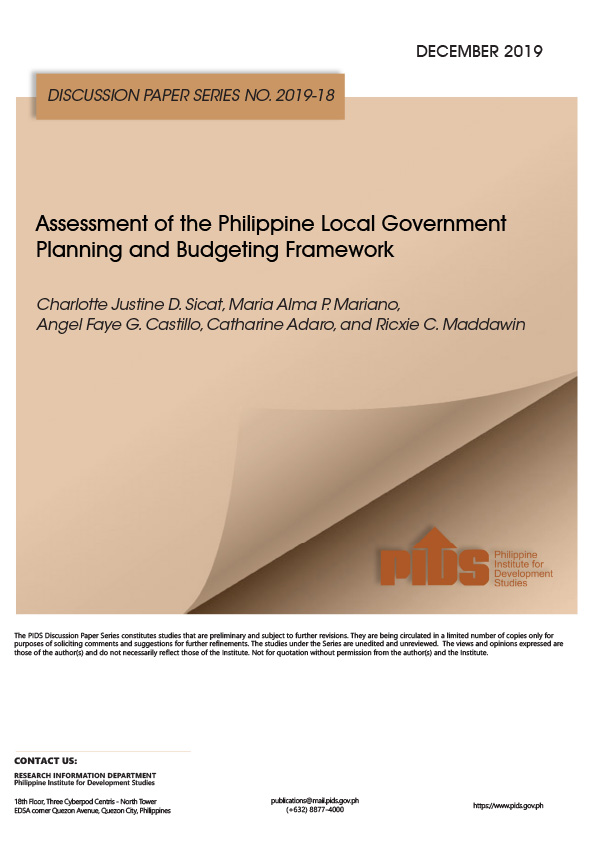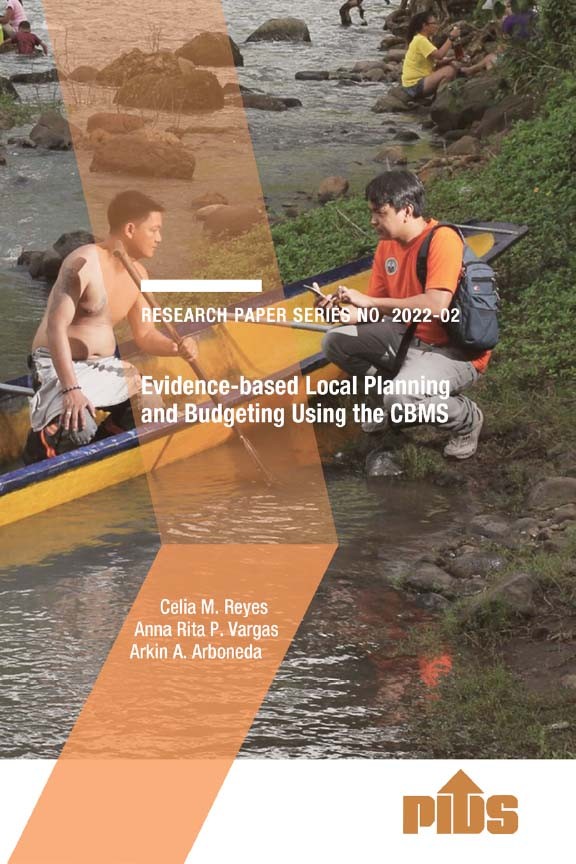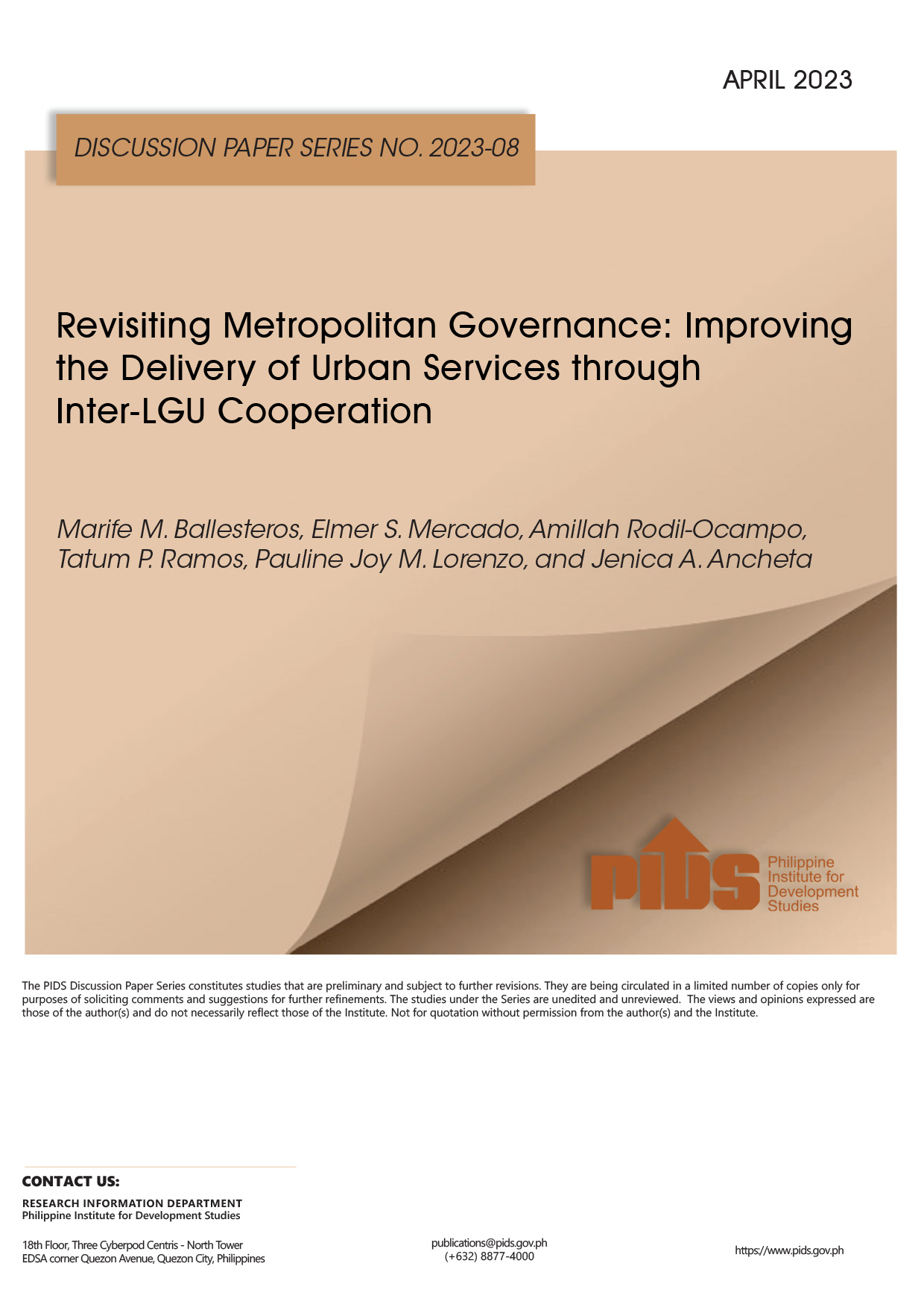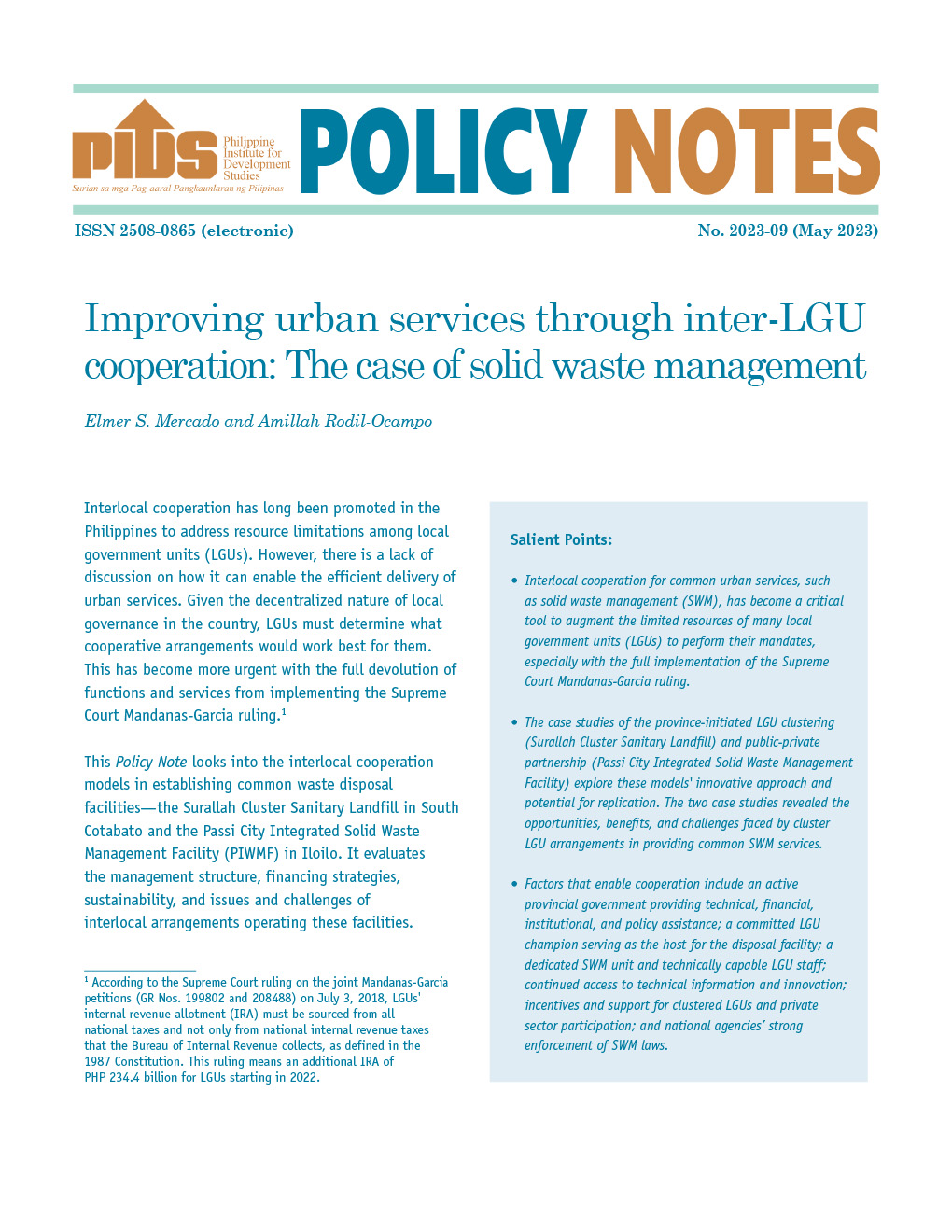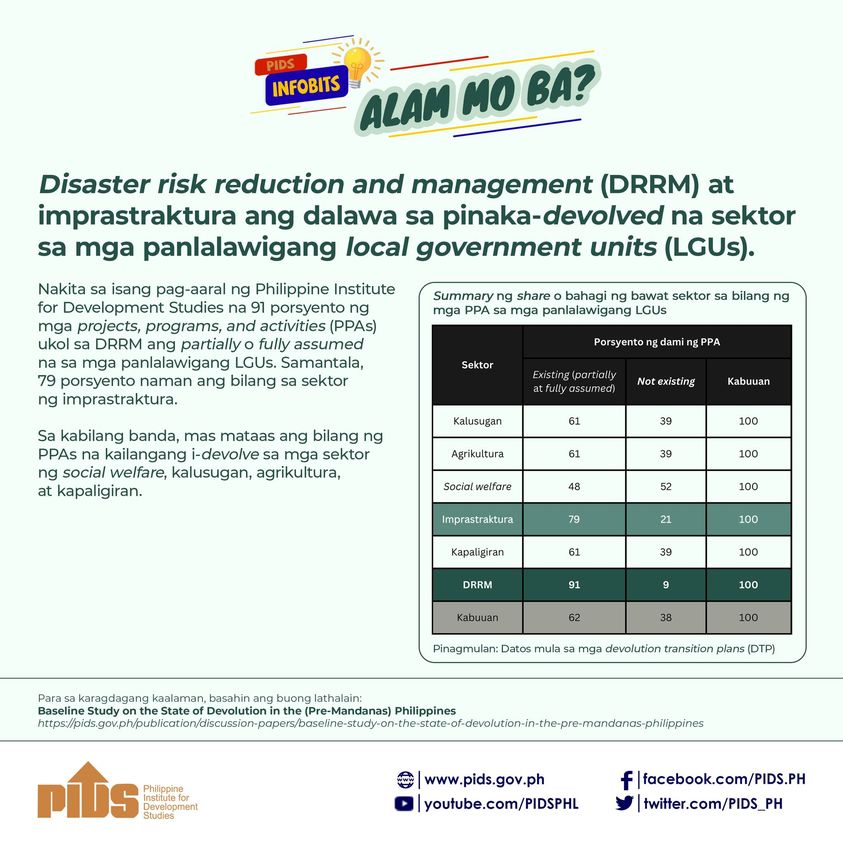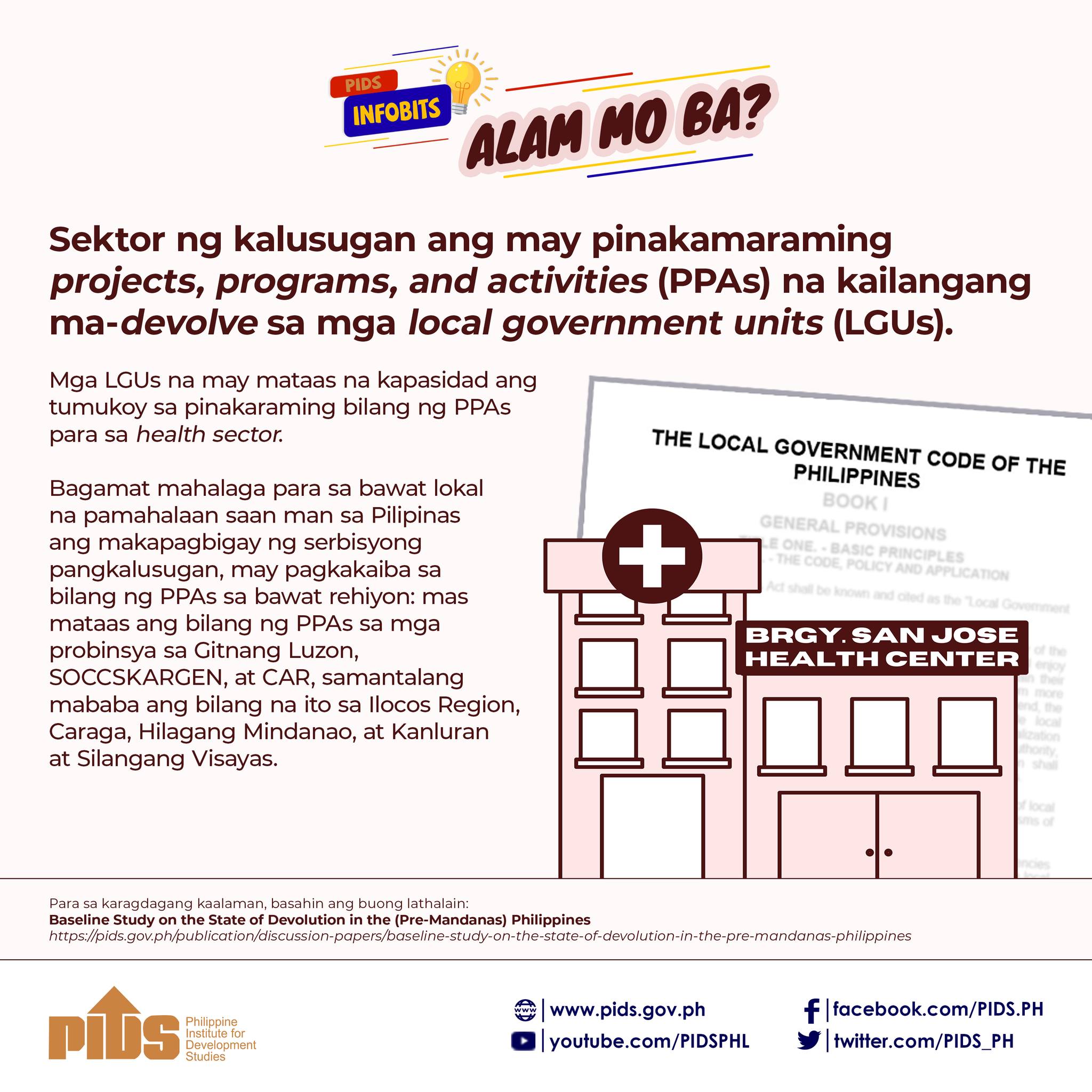Delivering public goods and services requires identifying the needs of constituents and designing policies and programs to address these needs in the hopes of attaining development. These policy and program interventions should get the appropriate budgetary allocations to be implemented and effect change. Identifying the needs helps determine the necessary interventions embodied in plans which, in turn, promotes change and development--this is after it is successfully implemented through budgets. The study looks at this mechanism of development for local governments and maps out the current planning and budget framework. Corroborated with evidence from a nationwide survey of municipalities, several areas of improvement in the planning and budgeting process, such as stricter enforcement of the presence of development plans and substantiating the prioritization of investment programs, are identified. These areas have implications on local governments as well as on the oversight government agencies. Finally, this study is timely now that the national government is at the cusp of infusing local governments with a broader base for intergovernmental fiscal transfers.

